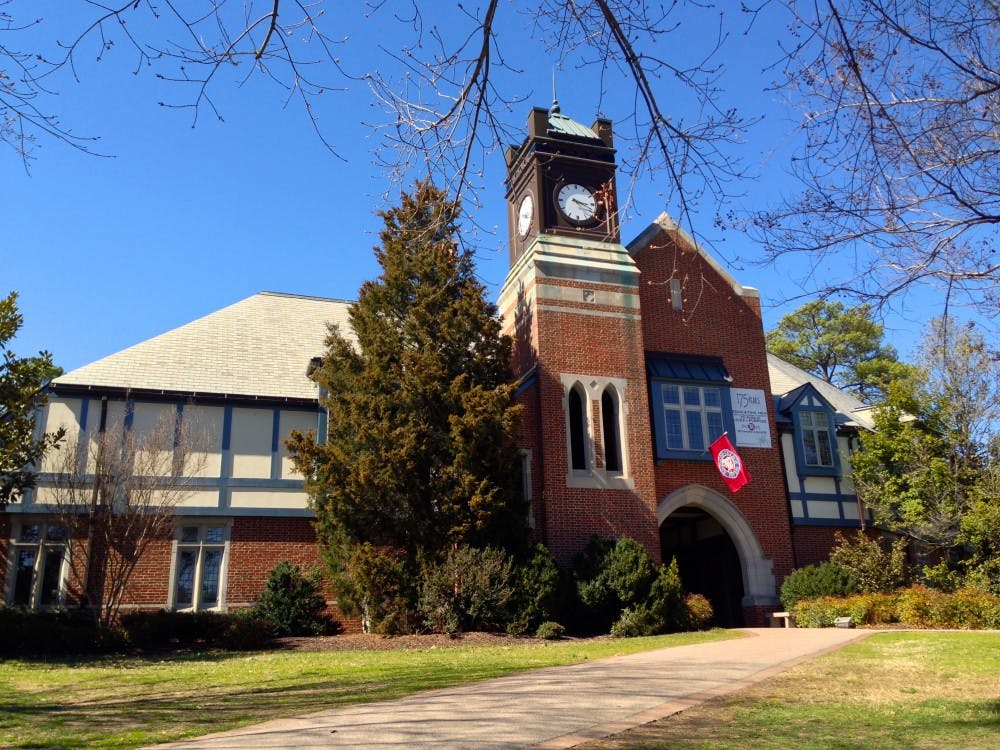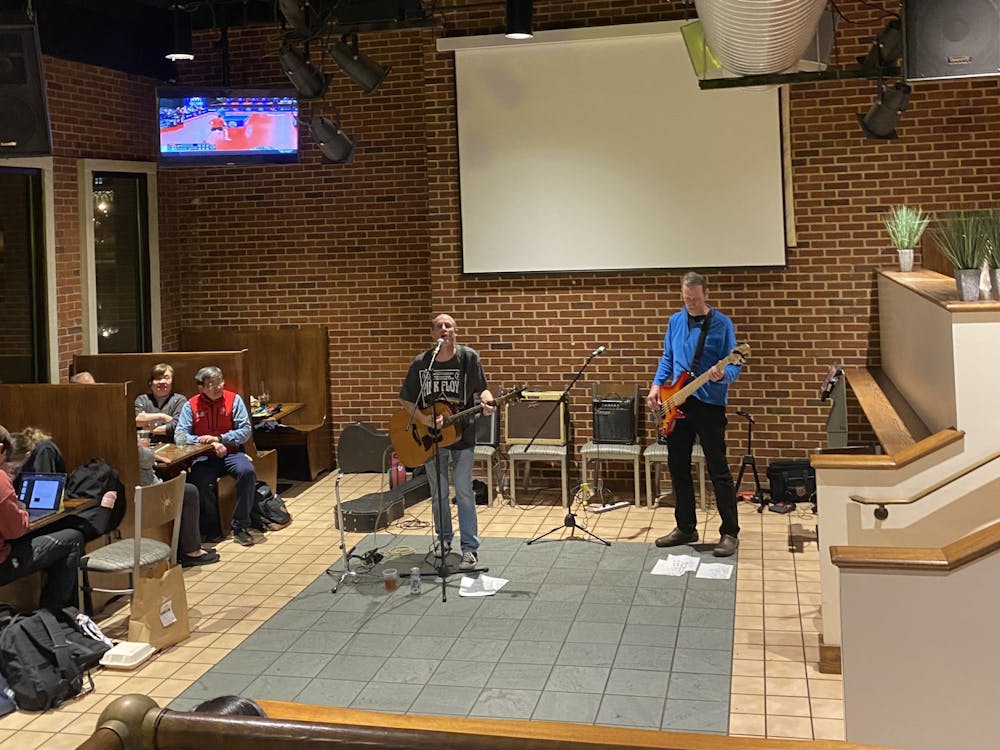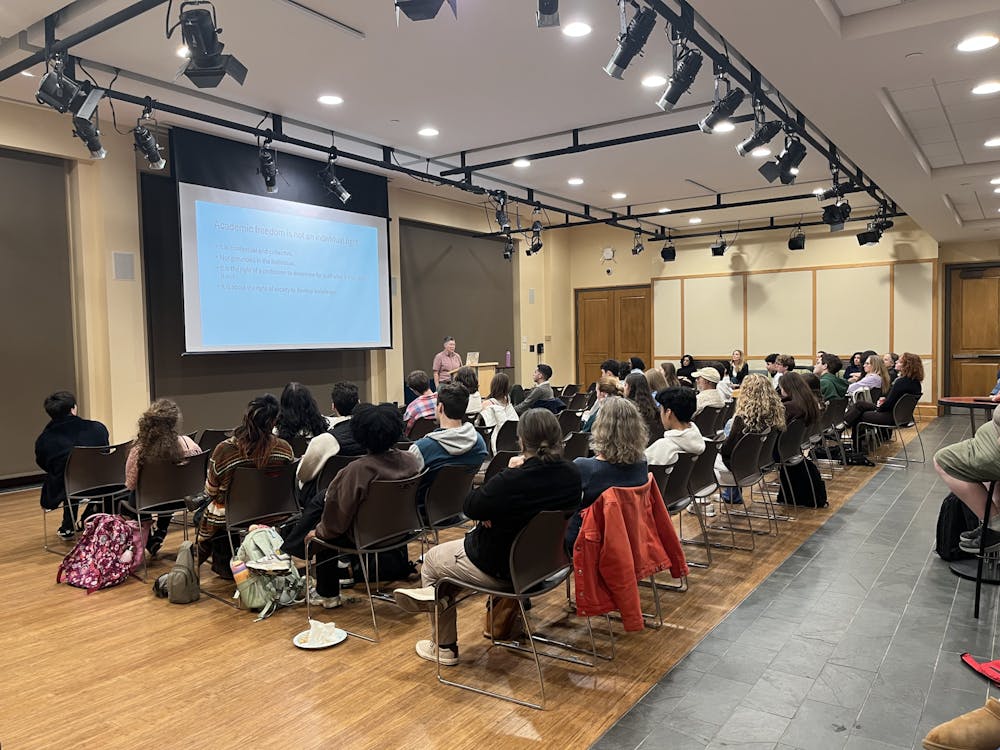In an effort to hold in-person classes safely this fall, the University of Richmond introduced interim COVID-19 policies and physical distancing rules. Many of those rules are to be followed—or broken—within residence halls and apartments on campus, areas typically under the purview of resident assistants.
As such, RAs this semester found themselves with the additional duty of enforcing COVID-19 policies, alongside their regular responsibilities. This new task raised concern for Will Walker, who cited a lack of clarity about enforcement expectations and jurisdiction as a major concern.
Walker resigned from his position as an RA on Aug. 28 after he was placed on probation on Aug. 25, he said. Walker’s probation was the result of critical statements that he made on his personal Instagram account, he said. These statements, which Walker posted on August 17, criticized the general apathy of the student body in regards to mask-wearing. Walker also said in this post that he did not want to be a police officer, but he was willing to report anyone who did not follow COVID-19 protocol.
Walker was previously an RA in Gray Court for the 2018-19 school year and was the head resident of Lora Robins Court during the 2019-2020 school year, he said. He was an RA in the University Forest Apartments for three weeks before resigning, Walker said.
Walker said he had been very uncomfortable as an RA enforcing the COVID-19 policies outlined in the Physical Distancing Framework because he saw the policies as contradictory and unclear.
“Everything felt more suggestive in nature," he said. "There was no written language. It was all conversational ... Basically, everything was left up to the discretion of the RAs and the conduct officer or supervisor."
During the RA training sessions this summer, Office of Residence Life and Housing staff told RAs to use their personal judgment when students broke policies, Walker said. RAs had the option to simply educate the person or document the infraction, he said. Any documentation could possibly, but not necessarily, result in eviction or suspension, Walker said.
“It’s very difficult to write someone up when you don’t know what the policy is or how it’s going to be enforced,” Walker said.
Molly Lewis, associate director of Residence Life and Housing, underlined the importance of education in policy enforcement in an email sent to The Collegian on Oct. 20. Lewis wrote that RAs should have a good understanding of the communities in their halls to know the best ways to approach situations pertaining to the COVID-19 policies.
Lewis wrote that Residence Life outlined the roles of RAs in enforcing COVID-19 policy during their August training sessions. No two enforcement situations would be alike, which can make the RA role much more difficult, Lewis wrote.
“However, with our policies as a guide, and allowing the RAs to use their knowledge of their floors and residents, we try to come to the best possible solution in every enforcement situation,” Lewis wrote.
Lewis wrote that it was important for students to learn from their mistakes so they could make better decisions surrounding COVID-19 safety in the future. She also wrote that RAs deserved recognition for their ability to adapt quickly to these new circumstances.
Enjoy what you're reading?
Signup for our newsletter
Nathan Tatum, head resident for Freeman and Robins halls, wrote in an email to The Collegian on Oct. 20 that RAs were still expected to document all rule violations. However, these documentations can be up to the discretion of RAs, Tatum wrote.
“My understanding at least as far as COVID policies go is that we are generally supposed to be documenting all violations. There of course is some flexibility with that," Tatum wrote. "...We all occasionally forget things. But in cases that it’s pretty clear the student didn’t just forget, we’re supposed to document that. The discretion rests more with ResLife on how to follow up after documentation.”
Walker said in typical, non-COVID-19 circumstances, RAs are expected to document every single violation that occurs in residence halls.
“The usual RA process is to document things," Walker said. "But when I say document things, I mean things like underage drinking, public intoxication, vandalism. Things that are very traditional and on the books, and it is very straightforward and clear how we handle these things because we’ve done them lots of times in the past.
"But, whereas, 'Document everything for these COVID-19 violations,' — I don’t know what that means."
A current RA in a first-year residence hall, who spoke with The Collegian on the condition of anonymity because of concerns about maintaining their position, has been told by The University of Richmond Police Department that only RAs can enforce COVID-19 policies, the source said.
The source saw a group of students clearly breaking policies come into contact with URPD, the source said. This specific group of students was not practicing social distancing nor wearing masks, the source said. URPD officers came to the scene, but did not reprimand the students for not following COVID-19 policies, the source said.
“They told me that, as an RA, I had more power than they did and that it was technically more of my responsibility for me to go up to them and tell them to put on their masks," the source said. "And that kind of made me upset... I’m a student. I doubt they’re going to listen to me in the first place.
"[URPD] are adults with weapons and training. I’m assuming they’re going to listen to you a lot more than me."
The source also expressed concern over the fact that RAs have to manage the responsibilities of both a student and a rule enforcer, especially when enforcement officers are not supporting them, the source said.
“It’s just like, I just do not understand the purpose of URPD at this point," the source said. "It’s just a matter of safety, and [UR] always stress[es] like, ‘Oh, URPD is here to protect us.’ One of the many instances where they could’ve protected us, they just chose not to and were very hands-off."
Tatum wrote in his Oct. 20 email that RAs are considered to be the primary enforcers in residence halls, but they do have the ability to reach out to area coordinators and URPD if they are in need of extra support. Outside of residence halls, though, there is no designated COVID-19 policy enforcer, Tatum wrote.
“I suppose the expectation is that everyone on campus will hold each other accountable," Tatum wrote, "but honestly people — especially students — tend to be reluctant to call out their peers, so there’s a bit of a gap in policy enforcement around campus.”
In contrast, Lewis wrote that URPD is charged with the formal responsibility of keeping community members accountable in outdoor spaces. Lewis also wrote that the UR community was charged with holding each other accountable in following COVID-19 policies.
Beth Simonds, URPD's assistant chief of police, did not respond to The Collegian's request for comment.
In August, Tatum created a petition that called for hazard pay and guaranteed year-long contracts for RAs. Tatum requested hazard pay because the RA position requires in-person interaction, therefore increasing the risk of COVID-19 exposure, he wrote in the petition. Also, a sudden switch to remote learning could cause RA contracts to be terminated, Tatum wrote in the petition. He also wrote in the petition that, since many RAs rely on their income from this position, year-long contracts would guarantee that RAs would still receive the pay that they would have already received.
Tatum wrote in his Oct. 20 email that the provisions that the petition called for would not be met. This is primarily due to stresses on UR's budget and the fact that UR does not guarantee any contract for staff or faculty, Tatum wrote.
Despite this, conversations surrounding the improvements of the RA role are still occurring, Tatum wrote. Tatum wrote that Lewis and he have worked together to create the RA Advisory Council, which is made up of RAs who work to identify and address issues in the RA role. Tatum is planning to continue the discussion of guaranteed contracts to this council, he wrote.
“I’m really optimistic that this council will help us to make the RA role as best as can be for everyone in it,” Tatum wrote.
Contact international editor Susanna Getis at susanna.getis@richmond.edu.
Support independent student media
You can make a tax-deductible donation by clicking the button below, which takes you to our secure PayPal account. The page is set up to receive contributions in whatever amount you designate. We look forward to using the money we raise to further our mission of providing honest and accurate information to students, faculty, staff, alumni and others in the general public.
Donate Now



